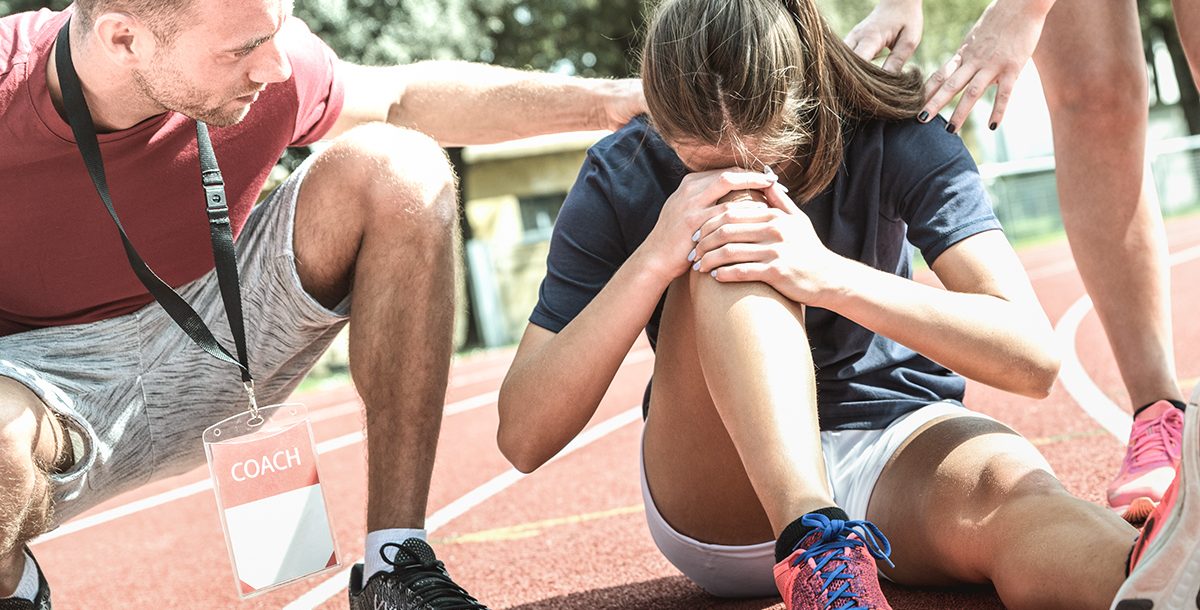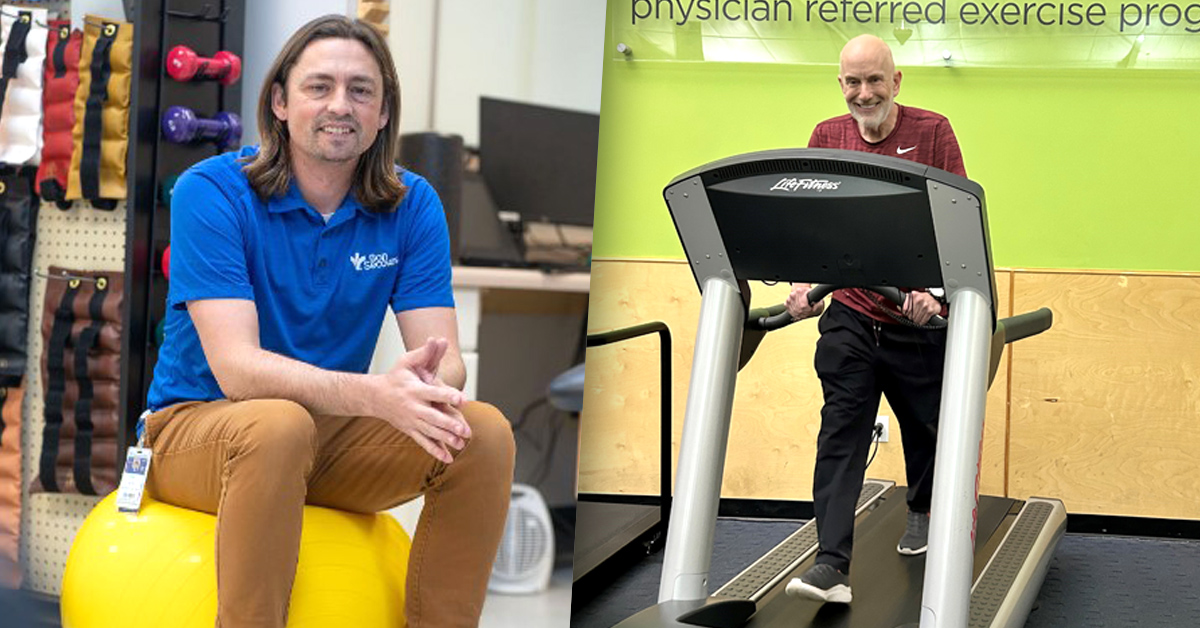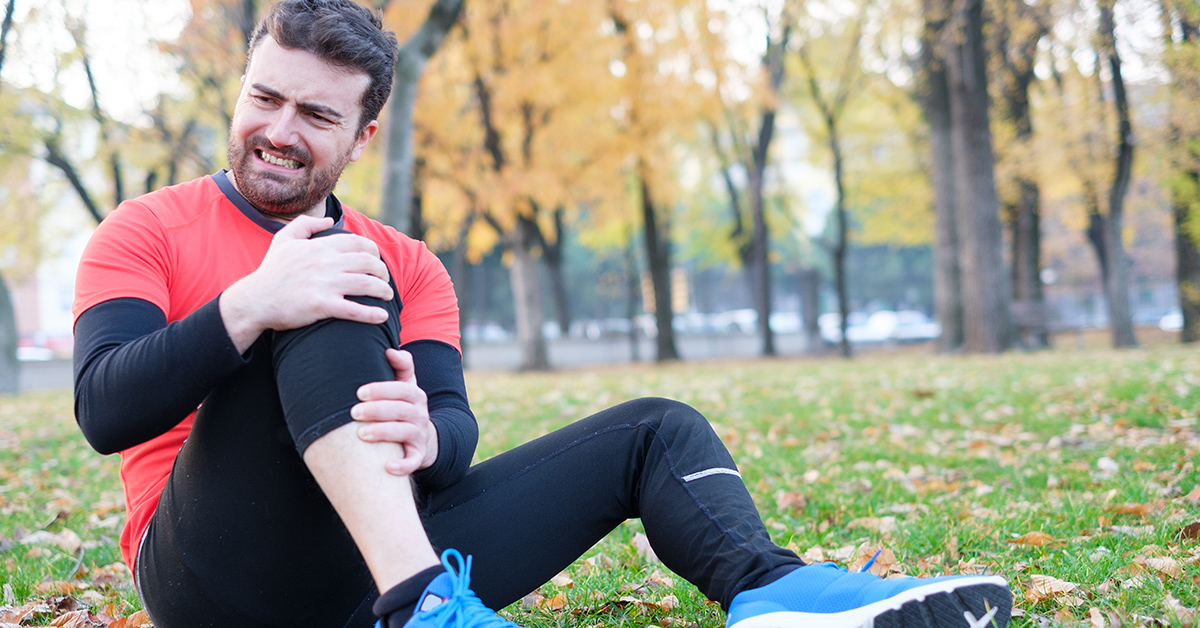Whether it is vacation with the family or recreational sports, during the summer we tend to be outside and moving more. The extra physical activity is generally great for our health, but it can also lead to a higher risk of injury.
Scott Watson, MD, (pictured below, left) and Shay Koch, MD, (pictured below, right) are both orthopedic surgeons specializing in sports medicine at Bon Secours Piedmont Orthopaedics. We asked them to break down the most common summer injuries they see at their practice.

Meniscus tears
A torn meniscus is one of the most common knee injuries, and it’s something Dr. Koch says he sees even more of when the weather warms up.
“During the summer, there’s certain things that tend to pop up a little more often than others, because people are on vacation and more adults are getting involved in their weekend warrior sports and so on. They end up in our office from trying to do a little too much.”
Menisci are the C-shaped pieces of cartilage that act like a cushion between your shinbone and thighbone. Any activity that causes you to forcefully twist or rotate your knee can lead to a tear, which results in pain, swelling and can sometimes lead to a restriction in motion.
Rest can sometimes be enough to ease the pain until the injury has time to heal on its own. In other cases, a torn meniscus requires surgical repair.
ACL tears
This injury occurs when there’s a tear or sprain of the anterior cruciate ligament (ACL) – one of the strong bands of tissue that helps connect your thigh bone to your shinbone. Many people hear a pop or feel a popping sensation when this occurs. The knee may also swell or feel unstable.

While most people associate an ACL tear with professional athletes, Dr. Watson stresses this injury can happen to anyone.
“It’s usually a planting, non-contact, pivoting injury. That certainly can happen in soccer or lacrosse or football, but it also can happen just playing on the beach or jumping off the back of the truck or playing kickball in the yard.”
Treatment can include rest and rehabilitation exercises, or it could require surgery to replace the torn ligament.
Shoulder injuries
Playing a game of toss with your kids is a popular summer pastime, and we’ve all found ourselves lugging way too many bags or suitcases up a flight of stairs to our hotel room. However, those simple activities can also land you in the doctor’s office.
“That’s when injuries happen most often – you’re either lifting or pushing or carrying things in awkward positions that the body wasn’t designed to lift in,” Dr. Koch warns. “It can lead to inflammation or it could end up being something more serious like a rotator cuff tear.”
This involves a tearing of the muscles that help us rotate our shoulder and arm in and out. This can cause a pain or tingling sensation in the shoulder or down the arm.
Another common injury is a torn labrum, which is the cartilage that lines and reinforces the ball and socket joint of the shoulder. The labrum contributes to shoulder stability. When torn, this can lead to partial or complete shoulder dislocation.
“Often times, that can be injured with an instability episode from a fall – either from a height or a traction injury where someone’s trying to hold on to a rope, like in watersports with skiing and wakeboarding,” Dr. Watson explains. “We’ve also had a few patients with injuries around the water just getting in and out of a boat at the dock, where they have that outstretched arm to catch themselves.”
Just like the other common summer injuries listed above, treatment for shoulder injuries varies based on the severity, ranging from rest and physical therapy to cortisone injections or surgery.
No one wants to get injured and putting a pause on summer fun is also not ideal. So, both Dr. Watson and Dr. Koch recommend warming up and stretching before any physical activity. They say this is the best way to help prevent these summer injuries from happening.
And unfortunately, some injuries are just unavoidable. If rest, ice, compression and elevation don’t lead to an improvement after a few days or if you’re experiencing more debilitating symptoms, seeking professional help is a must.
If you’re injured, we are here to help. Learn about the orthopedics and sports medicine services we offer at Bon Secours.





